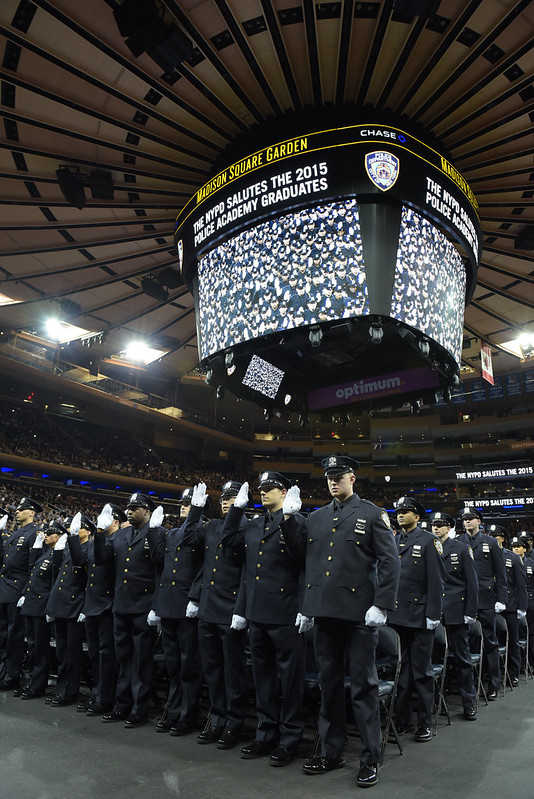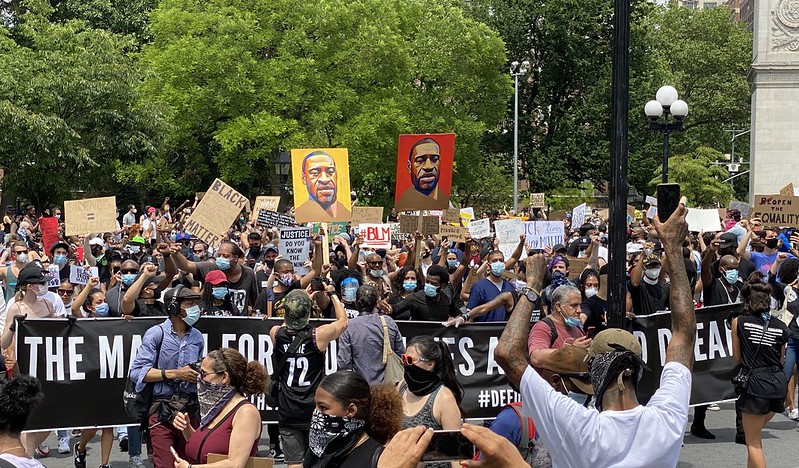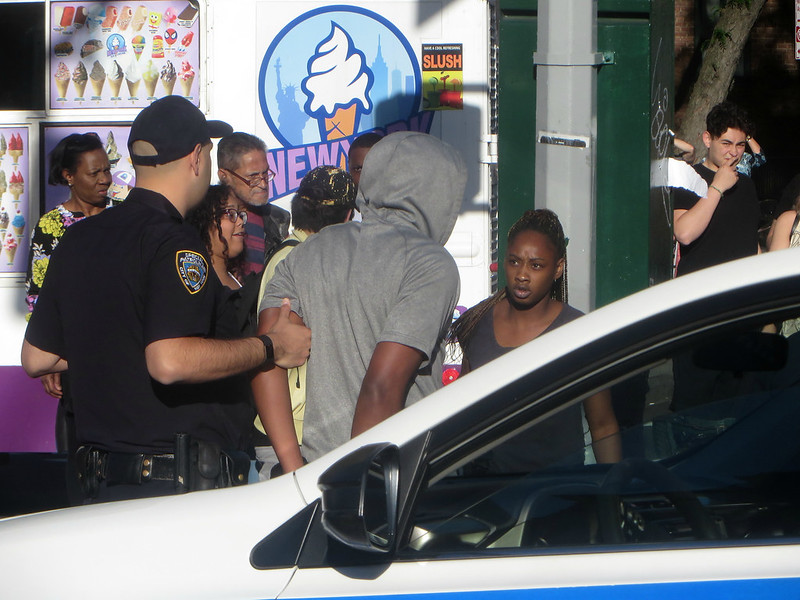This opinion piece is part of a series dedicated to the issues brought to the fore in the aftermath of the killing of George Floyd, told from different community perspectives
I did not want to say anything and did not feel it was my place to add my voice, but moved by optimism and anger, I would like to address the truly national moment we are having that appears to be lighting a spark of actual, genuine change that we can see and feel. It’s about George Floyd and everything that led to this moment where we have been moved to action.
I was an NYPD officer, and I was a paramedic for almost a decade before that, with three years spent as a SWAT medic. I walked a beat in East Harlem and patrolled the trains in the Bronx. I worked in a citywide firearms initiative that brought me to the precincts with the highest levels of crime. I know what I saw. I know what I see now.
The police — and the entire criminal justice system — needs urgent systemic reform. Policing, as a job, as it has been performed, is antiquated, unjust, and doesn’t begin to address the world we live in today. The police unions, of which I am a member of the PBA, have absolutely no idea what policing in the 21st century looks like and what our communities need and deserve.
It is not war. Police are not soldiers defending the city from invaders. It is OUR city. Police serve US.
Black people live in fear — for their lives, and with the feeling that they are being policed by an occupying force that are not neighbors, not allies, and certainly not friends. “Community policing” needs to recognize how little law enforcement plays in daily interactions with residents. It is a social service as much as it is law enforcement, ensuring that communities are functioning. That people have access to resources and services. That people feel safe.
Policing is only one part of the equation, but I’m going to address it because there are tangible steps that can be taken now.

Reform starts in the police academy. There is too little time spent on community interaction practicum, and de-escalation programs ARE. A. JOKE. I learned “Verbal Judo,” which is as stupid as it sounds. Police need to learn — and then PRACTICE — how to talk to and respect the residents they serve. To know the communities they will work in.
All recruits need to devote more than just a few days to community engagement. They should spend MORE time on it than self-defense and firearms training. Most of the time spent in the academy should be dedicated to learning how to interact because all of the other parts won’t matter if they can’t figure out what the actual problem is before them.
If you train in defensive tactics non-stop and never train to talk, which will you be more comfortable using when it gets tough? When you’re feeling anxious, under pressure? When you’re scared?
And representation matters — in the academy and on the street.
Law enforcement is the arms and hands that pull people into the body of the courts, and that is an awesome power that requires discretion. Every arrest is a potential job lost, a class missed, a child left with neighbors. Every ticket hits the monthly budget and can lead to warrants if you don’t — or can’t — pay.
How precincts measure activity and job performance CANNOT rely on the number of arrests or summonses. You cannot use CompStat as a panacea for all of the Department’s troubles. It is a tool and one that is misused regularly.
It is not a crime to be poor or to be homeless. It is not wrong to speak a different language or to eat different foods or to celebrate different cultural lives in the most diverse city in America.
“Law and order at all costs will cost us everything. Not ever looking inward doesn’t acknowledge the real issues we face and the fear that black and brown people live with every day — that each interaction with police may be their last.”
Cops need to know when a call is medical and not criminal. Police need to learn about and be trained to identify mental illness, as well as developmental and physical disabilities. To know what autism is and how to recognize if someone is deaf and whether or not the person they are responding to is unable to understand commands. A system should be implemented to quickly triage calls as medical and then have response teams with special training respond, deescalate, and save lives.
Police not only need to be taught these things in the academy, but they also need to live those experiences as rookies. Rookies are sponges. They will behave as they see others behave. It is when they first hit the streets that their entire careers — and how they will treat others — are formed. Train them well, show them how to talk, and how to display discretion.
Say out loud — AND DEMONSTRATE WITH ACTIONS — that black lives matter.
Say out loud — AND DEMONSTRATE WITH ACTIONS — being poor or homeless is not a crime.
Say out loud — AND DEMONSTRATE WITH ACTIONS — that mental illness is not a crime.
When someone breaks into a clothing donation bin in winter because they’re cold and they need a coat, give them a coat.
Teach police to never say “it’s not my job.” Hold each other accountable. Accept that independent oversight is not only necessary but that it will make the job better and begin to heal the necrotic wound that will not close between police and the residents they serve. Cops who behave badly should not be cops.

I worked with some fantastic people in the NYPD. I also worked with cops who hated New York City. Hated the diversity, the different languages. Hated all electeds, the brass. Hated everything. It was an angry paycheck and nothing more.
I’ve watched the police unions spout absolute nonsense, defend every crooked cop, every bad decision, and stood in disbelief as union officials turned a deaf ear to reform, never once admitting that the problem may lie with them.
Law and order at all costs will cost us everything. Not ever looking inward doesn’t acknowledge the real issues we face and the fear that black and brown people live with every day — that each interaction with police may be their last. There can be multiple truths — that cops need to be safe in their work and that the job needs reform.
I was proud to serve the people of the city I was born in. I believe that the fact I worked as a medic first and was older when I joined the NYPD, made me a different cop. I believed, and still believe, that the greatest change can be made from inside and I worked to do just that, one interaction at a time.
In my locker I kept a picture that I looked at the beginning of every shift to remind myself that those I encountered require compassion and that things are not always what they may seem to be at first. I kept my eyes and ears open. I listened. I’m still listening. The process is never done. It is constant.
If we don’t value communities when we police them, you know for damn sure we don’t value their education or whether they get a loan. It is systemic racism and it permeates our culture, from the banks to the boardrooms, and every place in between.
I hope this moment becomes more than just a moment, but movement towards real equity and justice in our city. It feels like it. I will be an ally to help it get done.



